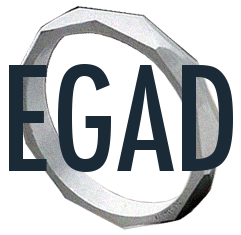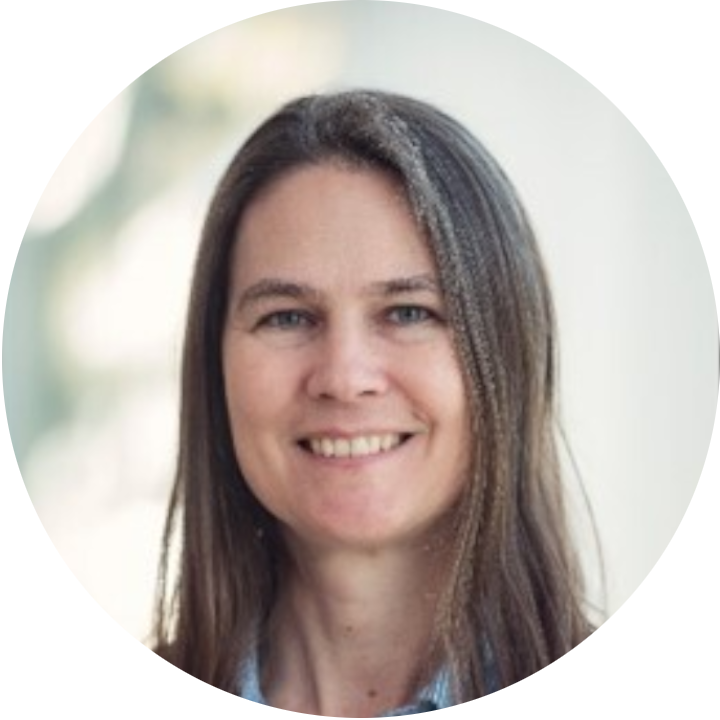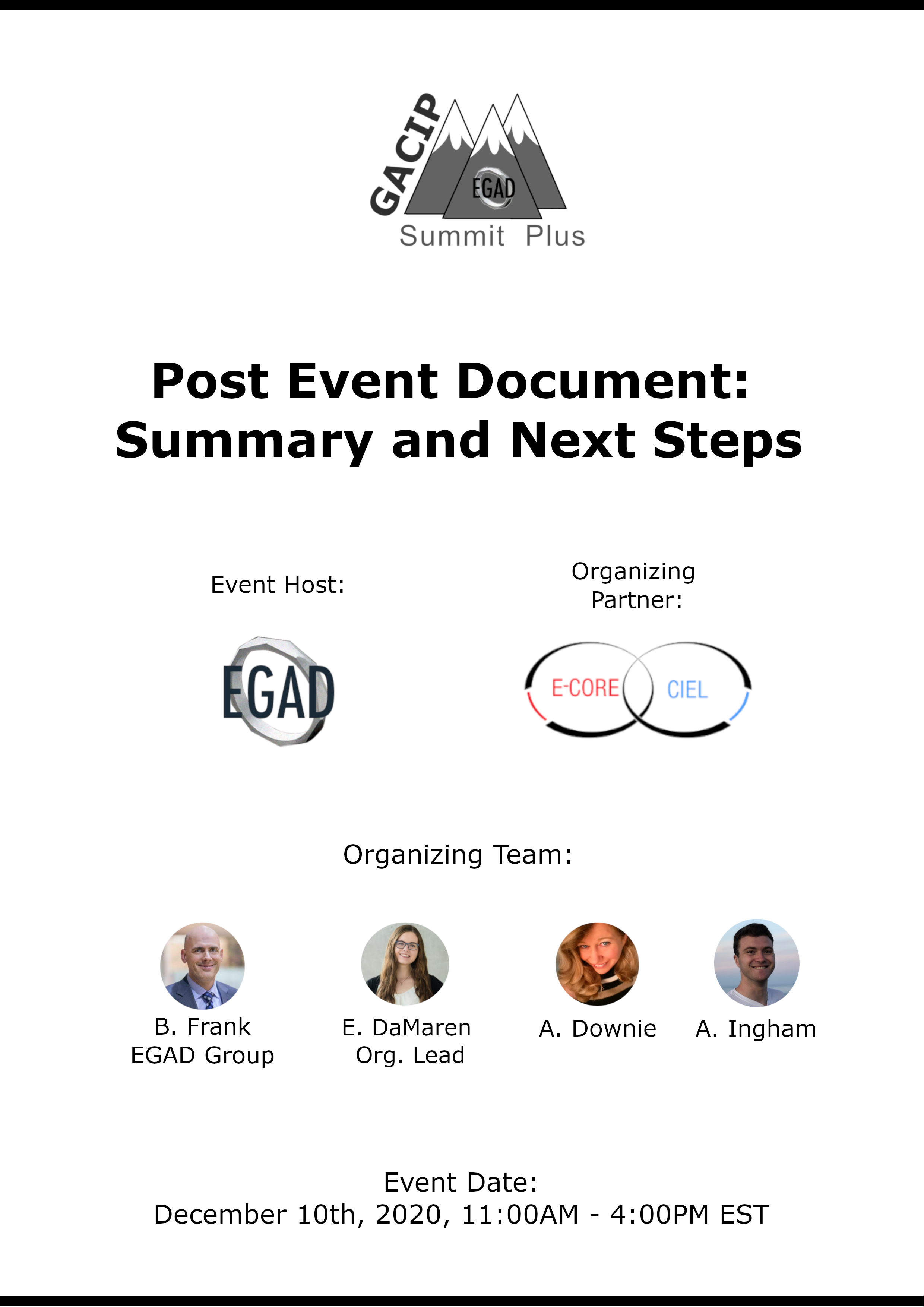
Introduction
In response to the recommended protocols associated with the COVID-19 pandemic, the 2020 GACIP Summit was moved entirely online. The shift allowed this previously regional event to be opened up to a national audience and reimagined as a one day conference considering both GACIP concepts and broader questions associated with the results of the forced experimentation that has taken place as engineering programs nationwide were forced to move to completely remote delivery.
Rebranded as GACIP Summit Plus in light of the changes, it took place on December 10, 2020 and was a free event. We had a total of 92 participants from over 30 institutions across the country join us throughout the day.
This post-event document provides:
- a top-level summary a concise overview of the event itself, with expansion options for more detailed descriptions
- links to full session slides and recordings,
- and summaries of key takeaways and next steps.
Event Platform Notes
Given how many groups are dealing with shifting to on-line events, our expectation was that there would be many user reviews and feedback available. This was not the case.
In summary, we were impressed with the platform features and especially their customer support. The “day of” technical difficulties were within the acceptable range for a first-time event and we have taken it as a learning experience. Our thanks to all our participants and speakers for their patience as we navigated the new platform together.
Morning Session
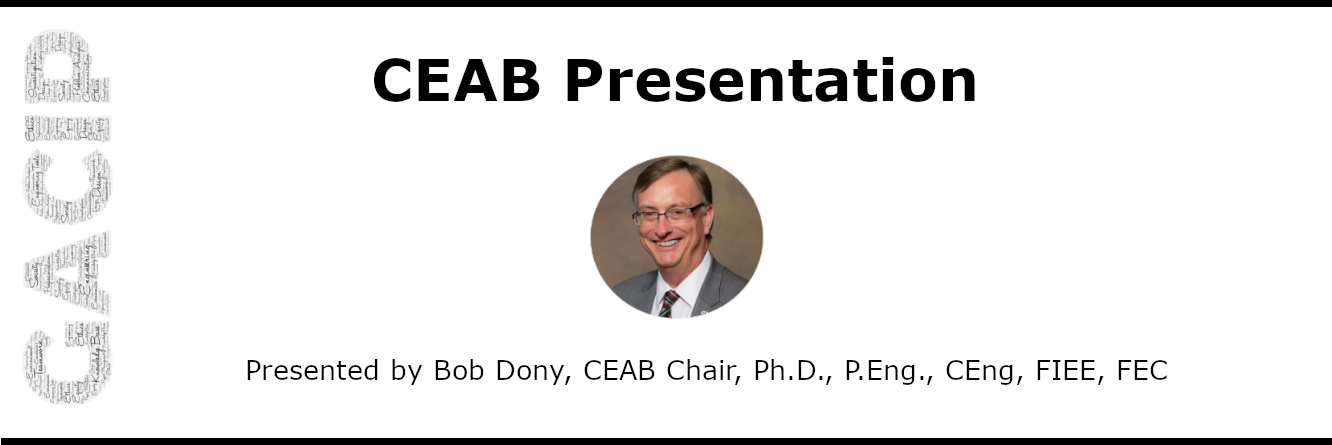
As has been our tradition, the day opened with the CEAB presentation. Bob Dony provided a summary of questionnaire changes and described how the Board is approaching a situation which remains full of unknowns. This year, GACIP Summit Plus Participants were invited to provide questions ahead of time which were then addressed in the presentation. There was also a Q and A session during the session.
The update covered the following topics (click any section of interest for more details):
You are welcome to review the full presentation slides or the session recording as well.
There was an extensive Q and A session following the completion of the official presentation - click below to expand the summary.
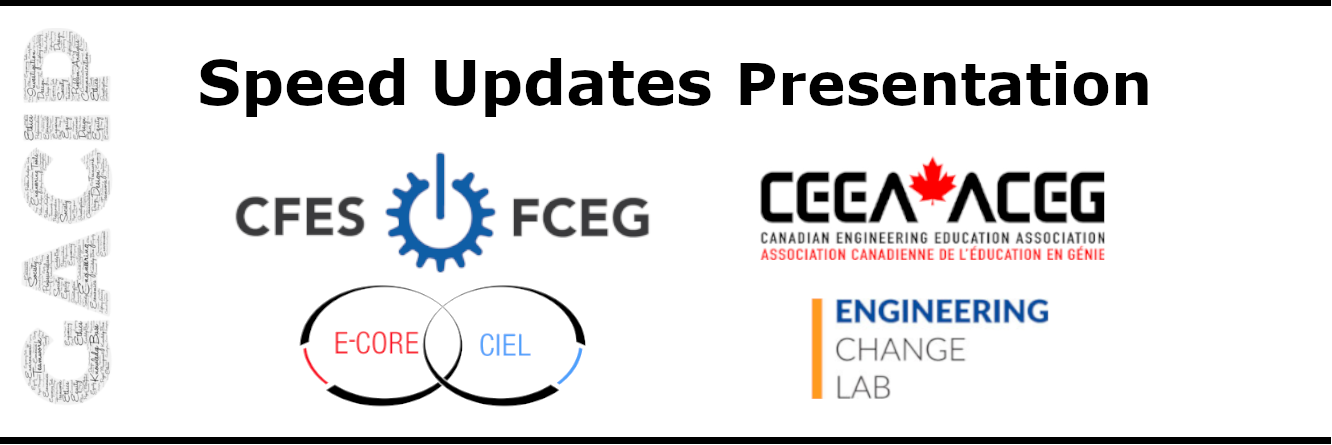
A number of groups working in the engineering education sector were invited to provide a concise presentation either summarizing their offerings, or sharing recent findings.
|
Organization |
Presenter(s) |
Key Takeaways |
|
Engineering Collaboration for Online and Remote Education (E-CORE/CIEL) Project |
Liz DaMaren, Project Coordinator
|
A review of currently available E-CORE/CIEL Project supports for engineering instructors, including resources, webinar recordings, Communities of Practice, and more. |
|
Julienne Bissou, Coordinatrice, CIEL Daniel Spooner, Responsable, CIEL
|
Background on the CIEL working group and information about their meetings and projects underway. |
|
|
Amy Hsiao, President-Elect |
An overview of current activities and a review of the plan for the 2021 CEAA-ACEG Conference, “Stimulating a Sustainability MIndset in Engineering Education”, which will be fully online this year. |
|
|
Mark Abbott, Director |
An overview of ECL’s recent work on the EWB International Open Letter on Graduate Attributes as a response to the World Federation of Engineering Organization’s consultation on proposed updates to the IEA Benchmark for Graduate Attributes and Professional Competencies. |
|
|
Sierra Sparks, VP Academic |
A review of the survey that the CFES conducted, seeking to understand how COVID-19 has impacted the student experience (which had over 4000 participants!). |
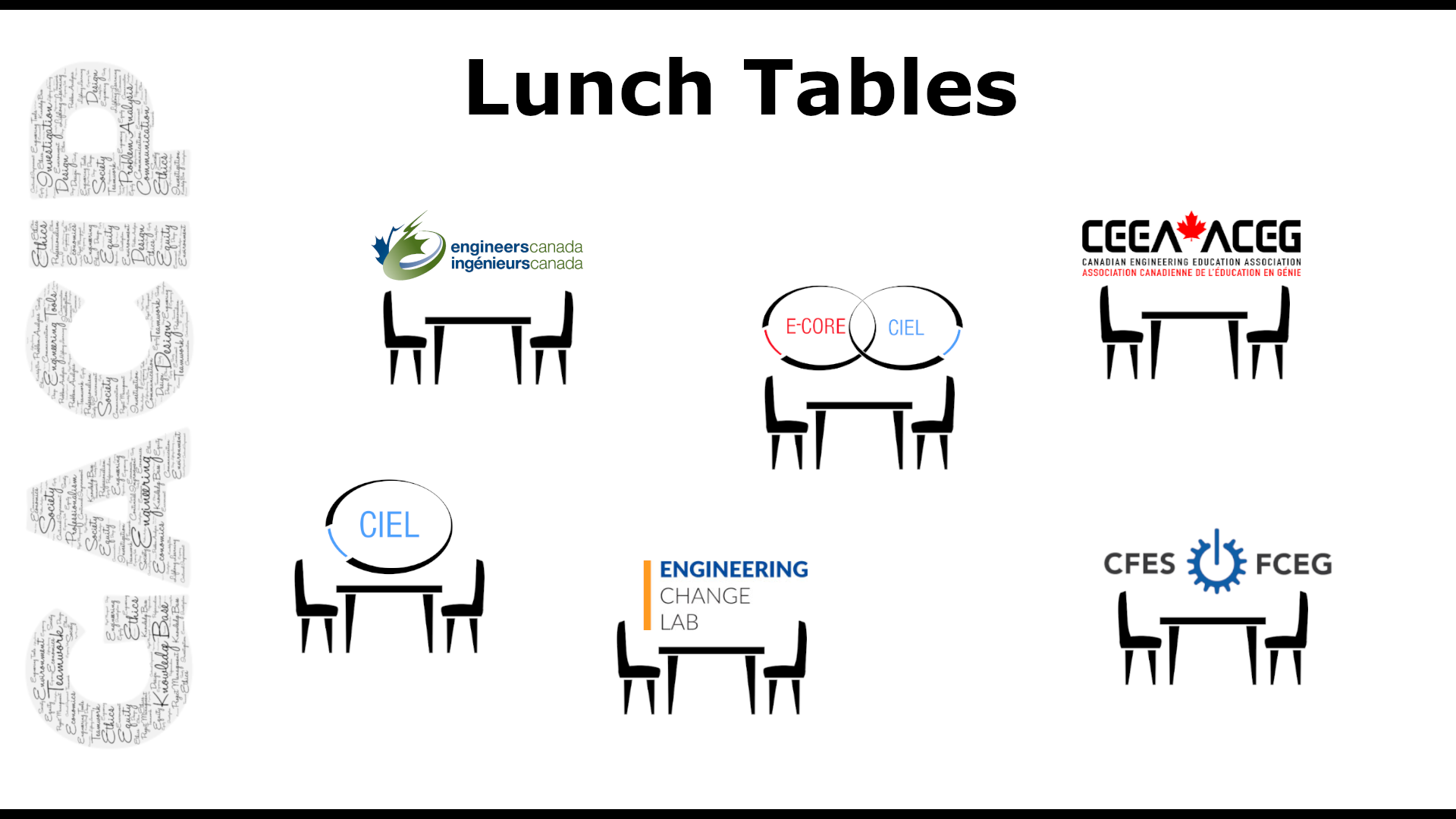
The Lunch Tables were informal breakout rooms provided for each of the morning session presenters as well as a general GACIP session hang out. No recording was made of the conversations, as they were not part of the formal proceedings, but rather a chance for some one on one discussions. This initial attempt to replicate the in-person experience was, as with all first tries, a learning experience, and we look forward to applying those lessons to the next event. Our thanks to the Table hosts:
Afternoon Session

The four panelists that joined the discussion were:
- Kush Bubbar, Assistant Professor, Electrical and Computer Engineering & J. Herbert Smith Centre, University of New Brunswick
- Jeff Pieper, Associate Dean, Continuing Professional Development, Schulich School of Engineering, University of Calgary & CEAB Member
- Carol Jaeger, Associate Dean, Academic, Faculty of Applied Science, University of British Columbia
- Brian Frank, Associate Dean, Teaching and Learning, Faculty of Engineering and Applied Science, Queen's University
Panelist Discussion
Each panelist was invited to give a brief update and statement regarding their current situation with a focus on one particular aspect of what they have observed within their own courses and/or at their respective institutions. They then engaged in an open discussion with each other exploring these ideas further. We are pleased to offer the key point summaries that can be expanded of initial panel perspectives, and the follow-up discussion:
Breakout Room Discussion
Following the initial panel discussion, participants were invited to enter smaller breakout room discussions with several prompts around experimentation in engineering education and where we go from here. When the group came back together, each room facilitator was invited to share a short summary of what was discussed in each room, which are summarized here:
Next Steps - How to Engage/Connect/Explore Further
Every year there is enthusiasm on the day of GACIP to extend and continue conversations, but follow-up gatherings are challenging due to busy schedules. The ascendance of on-line connections provides more flexible follow-up options. We hope you will review the possibilities identified from this year’s GACIP, and consider continuing the conversations that are of interest to you. Please note that you do not have to have been an attendee of the event in order to participate in any of the options presented in this section - the goal is to include as many of our community as possible.
Morning Session Follow Up Opportunities
All contact information for the morning presenters is included in their dedicated sections in this document. We also have put together a quick summary of where to find each presenter, for your convenience:
Afternoon Session Follow Up Opportunities
The break out room conversations covered a diverse range of topics, as indicated by the summary statements. We have identified some key themes with associated extant resources, engagement opportunities, or invitations to let us know if you would be interested in participating if a related opportunity is developed, as appropriate:
|
Topic |
Related Resources + Connection Opportunities |
|
Assessments Related |
|
|
Student Health Related |
|
|
Lecture Development and Instruction Quality |
|
|
Lab and Technical Material Remote Delivery Challenges/Opportunities |
|
Closing Remarks
The 2020 GACIP Summit Plus aspired to be a mix of the new, in terms of being a national, on-line event expanding our range of participant groups, and the reliably familiar, in our efforts to provide an opportunity to take some time at the end of the teaching term to reflect on the bigger picture issues associated with Graduate Attributes and Continuous Improvement Processes. The EGAD Group is grateful to E-CORE/CIEL Project for partnering with us to follow through on this vision.
We hope that both those who were able to participate in the day itself, as well as those who are reading about it here consider engaging further around the topics discussed over the course of the event. The E-CORE/CIEL Project is constantly working to catalyze and help support educators in their pursuits to develop resources, events, and other materials around engineering education. If you have resources you would like to share, an idea for an event, or have other suggestions for supports that could be developed, please reach out to the project team at ecore@ceea-aceg.ca. The EGAD Group remains dedicated to the discussion and advancement of the GACIP conversation, and our website remains a source of updates and resources.
